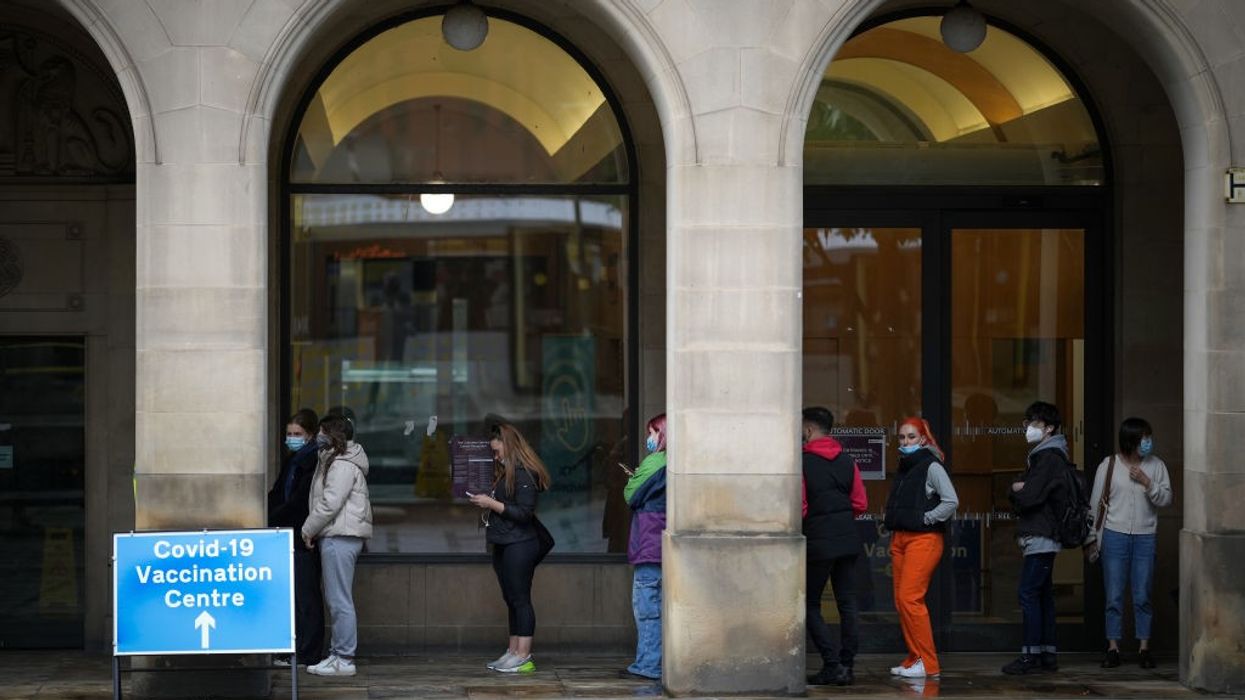OF NEARLY 7,400 people admitted to hospital in England in recent weeks, about 2,500 had yet to receive a single dose and a further 400 had been given only their first, The Times reported citing official figures.
Around five million people aged over 16 in the UK are still unvaccinated, according to the data released by the UK Health Security Agency.
Of the 300 people aged 18 to 29 who were admitted to hospital, about 66 per cent had not been vaccinated, the new figures showed.
Among the 1,553 people aged over 80 who were admitted, about 88 per cent were double-jabbed. Of the 1,377 people in their seventies it was 85 per cent.
Recently health secretary Sajid Javid has warned that Covid cases could reach 100,000 a day, and urged those offered boosters to get the jabs “not just to save lives but to keep your freedoms too”.
“We are living on a knife edge in terms of the availability of hospital beds, so even quite small numbers will make a big difference,” Professor Stephen Evans, of the London School of Hygiene and Tropical Medicine, told The Times.
“We know that two doses of AstraZeneca, followed by a dose of Pfizer, has a very good immune response. So people do need the booster.”
The rate of hospital admissions for double-vaccinated people in their seventies was 25.3 per 100,000. For unvaccinated people the same age it was nearly three times as high, at 67.9, the report said.
For vaccinated people in their thirties, the rate of hospitalisations was 3.2 per 100,000. For those unvaccinated, it was more than four times higher at 13.4.
The latest figures show about 8,140 Covid patients in hospital, with 872 on ventilation. The seven-day average for admissions was about 900, compared with January’s peak of more than 4,100.
Separate data from the Intensive Care National Audit and Research Centre shows that the average profile of hospitalised patients has changed. Before May 1, the median age was 60 and 66 per cent were male. For those admitted since September 1, the median age has fallen to 54 and a smaller proportion — 60 per cent — are men.
Health leaders say that hospitals are under strain. The president of the Royal College of Emergency Medicine told Times Radio that patients were having to wait in ambulances for long periods.
Katherine Henderson, who is also an NHS consultant at St Thomas’s Hospital in London, told the newspaper: “We feel that we’re under unsustainable pressure already. We’re entering a high-risk time when actually patient safety is beginning to be compromised.”
At the start of the pandemic, the R number of the virus was 3, meaning that if one person got it, they passed it to three others. That also meant that if two of the people they would have passed it to were immune, then they passed to only one, and the pandemic stopped growing, The Times report added.
According to the report, the R rate will increase during winter and Covid cases would spike, but the virus will recede in summer.
Professor Francois Balloux, director of the University College London genetics institute, has predicted average 20,000 infections a day given vaccine efficacy, current variants and current estimates of waning immunity.













